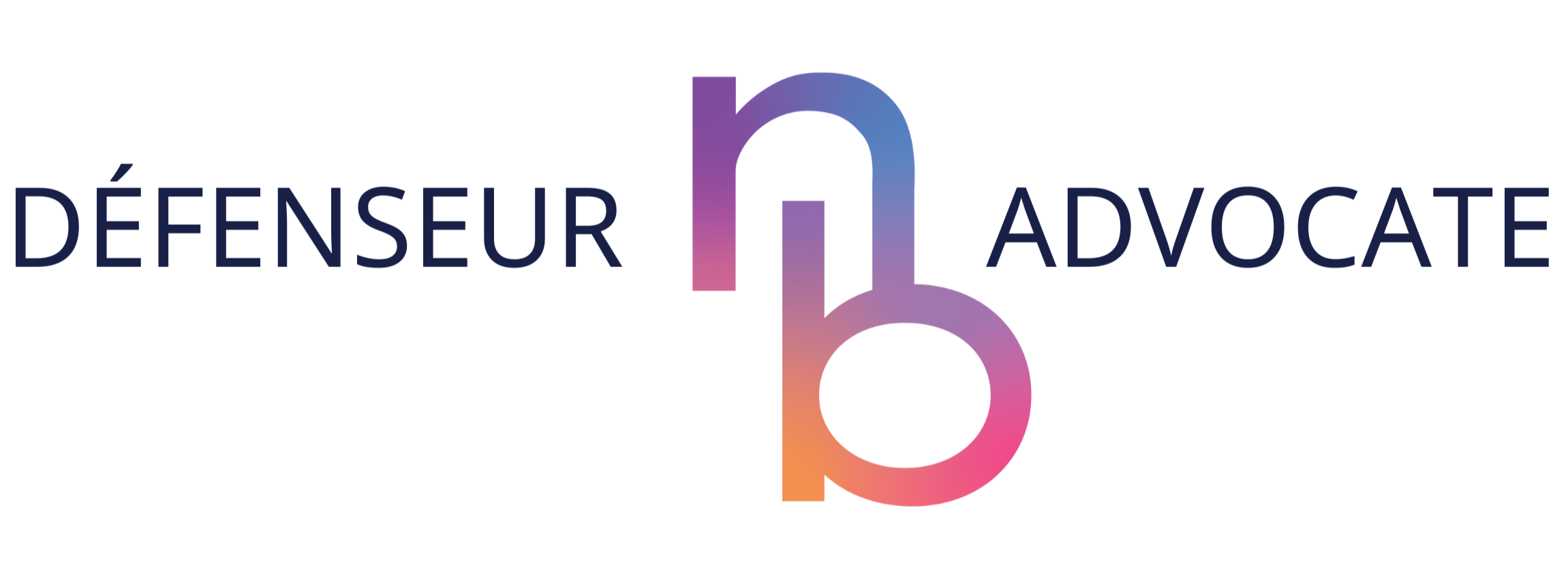
Newsroom
This is 16px paragraph text. Edit the text then connect it to a theme so it will match the site.
Downloads
Text in this article
Images in this article
Article Credits
undefined: undefined
About Us
This is 16px paragraph text. Edit the text then connect it to a theme so it will match the site.
Share on Social Media
Kelly Lamrock, New Brunswick’s Child, Youth, and Senior Advocate has released a report following an investigation into the $1.46 million funding provided by the Regional Development Corporation (RDC) to Village of Hope for the expansion of a recovery center for individuals suffering from substance use disorders. The report was made pursuant to the Advocate’s mandate under the Child, Youth and Senior Advocate Act (CYSAA) to examine government actions affecting vulnerable adults.
The report raises concerns about the use of the politicized RDC processes to make decisions regarding the funding of social services and the lack of attention to growing waitlists for addictions treatment throughout the system.
The Advocate found that RDC, as an economic development body, is not equipped to manage social services funding and policy considerations.
“It is clear that RDC’s process did not account for the potential impacts of shifting addiction treatment capacity toward faith-based services without adequate review of the overall system capacity. Fast-tracking faith-based services through a political process while failing to address wait lists for regulated, evidence-based services can remove the ability of people seeking help to truly exercise free, informed consent. Government must ensure that social programs are funded and managed by the departments with the necessary expertise to oversee them.”
The Advocate acknowledged that Village of Hope acted in good faith within the application process, and that the lack of due diligence was a failing of government.
The report also called upon government to provide better regulatory oversight and accreditation of private addiction treatment centres if government is to refer and facilitate the care of vulnerable people to them. The report notes the use of unpaid labour and supervised living conditions in the Village of Hope treatment model and the disconnect between government departments facilitating placements while simultaneously having no mechanism to ensure safety.
“There is no evidence of wrongdoing by Village of Hope,” the Advocate noted. “However, its activities—like many social services—place operators in a position of great power over vulnerable people. These models require robust oversight to ensure safety and effectiveness. Currently, several government departments appear to refer vulnerable people to on Village of Hope while taking no responsibility for oversight to avoid exploitation. This creates a troubling scenario where government departments know just enough to use the program but not enough to be accountable if something goes wrong,” the Advocate remarked.
The Advocate’s recommendations include clarifying RDC’s role regarding the funding of social programs and services, addressing wait times for addiction services, and having a process to regulate and accredit any private facility to which government provides referrals or facilitates access.
“Significant public funds were spent on a scarce public resource without adequate efforts to ensure that the funds met the broader public interest. Private services jumped the queue without adequate oversight to protect both people seeking treatment and the taxpayer,” the Advocate concluded.
APRIL 9, 2024
5 MIN TO READ
SHARE
Dec 5, 2024
2 min read
SHARE
Latest Stories

Category
Lorem ipsum dolor sit amet, consectetur adipiscing elit in sed dui nibh. Sed ut rutrum turpis sit amen consectetur...

Category
Lorem ipsum dolor sit amet, consectetur adipiscing elit in sed dui nibh. Sed ut rutrum turpis sit amen consectetur...

Category
Lorem ipsum dolor sit amet, consectetur adipiscing elit in sed dui nibh. Sed ut rutrum turpis sit amen consectetur...

Category
Lorem ipsum dolor sit amet, consectetur adipiscing elit in sed dui nibh. Sed ut rutrum turpis sit amen consectetur...

Category
Lorem ipsum dolor sit amet, consectetur adipiscing elit in sed dui nibh. Sed ut rutrum turpis sit amen consectetur...

Category
Lorem ipsum dolor sit amet, consectetur adipiscing elit in sed dui nibh. Sed ut rutrum turpis sit amen consectetur...
Share on Social Media
Downloads
Text in this article
Images in this article
Article Credits
This is 16px paragraph text. Edit the text then connect it to a theme so it will match the site.
About Us
This is 16px paragraph text. Edit the text then connect it to a theme so it will match the site.

